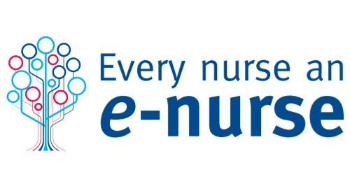
Digital identity, well-being and safety
You will learn in this domain about what digital identity means for a digital professional and a digital citizen. How you can make positive contributions in digital spaces. You need to be aware of the negative aspects too and how you can develop ways to limit these.
Being a digital professional carries a responsibility towards digital citizens. You are responsible for sharing data and protecting it.
This domain involves you demonstrating:
- the ability to develop, promote and safeguard appropriate digital identity(ies) that support a positive personal and organisational reputation
- the ability to use digital technologies in ways that support personal well-being and safety and that of others
- the ability to recognise and act upon digital situations and events that might compromise personal, professional or organisational security
- the ability to demonstrate and champion ethical, positive, healthy and appropriate attitudes and behaviours in relation to digital identity, well-being and safety of self and others.
(HEE digital literacy domain descriptors)
Identity, image and reputation
- I understand that any comment or image I post online can stay in the public domain and contributes to my digital footprint (a digital footprint is the information about a particular person that exists on the internet as a result of their online activity).
- I can identify the benefits and risks of presenting myself in different ways online, e.g. professionally and personally.
- I use my digital footprint to showcase my skills and professional experience.
Health and well-being
- I know the importance of balancing screen time with other parts of my life.
- I can identify different forms of bullying, including cyberbullying, and suggest strategies for dealing with it, e.g. screenshot, block, report.
Digital security
- I understand basic rules for sharing data and data security e.g. information governance.
- I can create and use secure passwords, e.g. apply characteristics of strong passwords.
- I am aware of simple encryption and the purpose of encryption, e.g. to send sensitive data more securely.
Activity ideas and resources
- Get Safe Online
- Learning Wales (2016) Digital competence framework - Citizenship
- NHS Digital. Data Security and Protection Toolkit
- NHS Scotland. Information governance
- NHS Wales. Information governance
- NIPEC. Record keeping
- Open University. Being digital. Skills for online life
- Open University. Developing a good digital footprint
- University of Edinburgh. Digital footprint. MOOC. Coursera. 3 week course
Page last updated - 08/10/2025






